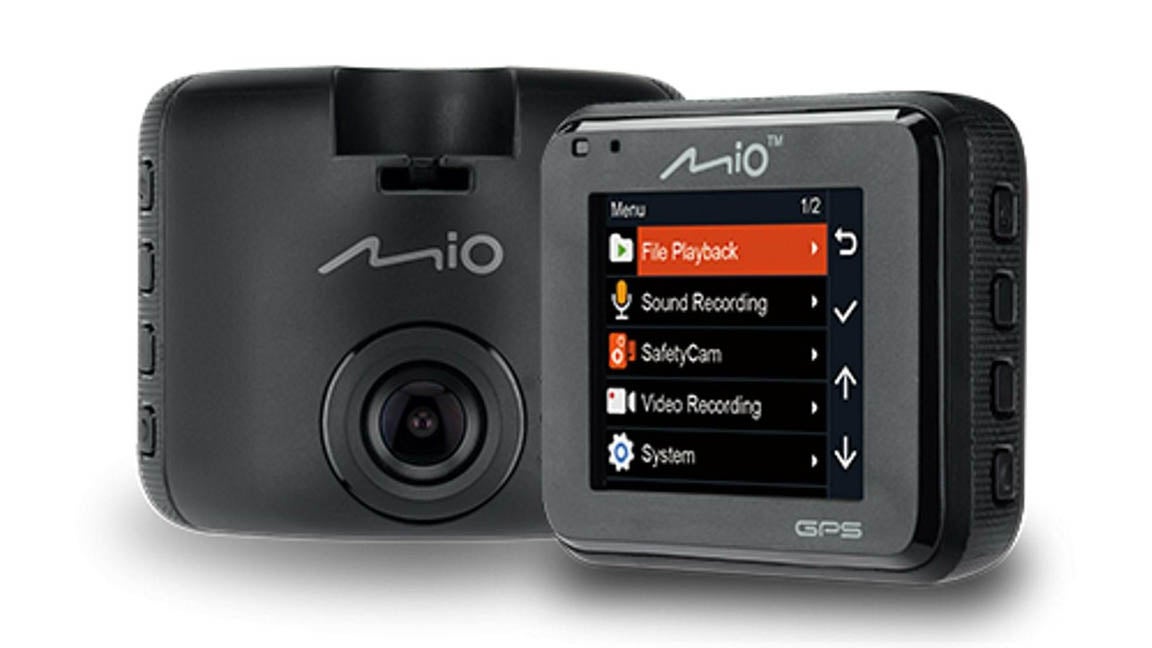Best dash cams 2020: Our top dash cam reviews for your car
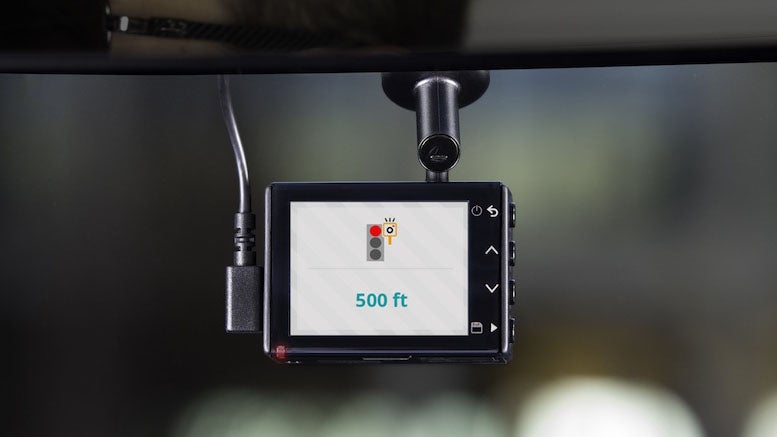
A dash cam adds protection for any driver. It helps detail any crash and can provide key evidence when making an insurance claim, or defending against a fraudulent one where another driver has caused a crash on purpose. As such, dash cams have grown massively in popularity, aiding in the successful conviction of some shockingly bad drivers.
Out of all the dash cams that we’ve reviewed, two stand out. If you want the absolute best image quality, the 4K Nextbase 612GW dash cam is the model to buy. If you just want something cheaper to keep an eye on the road, the Aukey DR-01 is a great choice.
How we pick the best dash cams
Video quality is, far and above, the most important aspect of a dashcam. We test all dash cams in a variety of driving conditions, from bright lights to night time, to see how the quality stacks up. Shooting video in this way also lets us compare the results between dash cams, so we can tell you which ones are best.
It’s important to note that, despite what you may read elsewhere, resolution isn’t the most important factor. Video quality is also dependent on the quality of the sensor, the lens and the amount of compression used. What’s important is being able to pick out details from the footage, such as car number plates. As such, as we’ve reviewed 720p cameras that are more capable than higher-resolution models.
We test each camera’s mounting options, finding out how easy it is to attach to your car physically, and how well the camera remained in position once fixed.
The quality of the interface and software is vital for any dashcam, as you need a reliable way to recover footage in the event of an accident. Again, we test all of these features, looking for ease of use and quality software.
Where extra features are available, such as integrated GPS, safety-camera warnings or collision-detection, we test these to find out how useful they are.
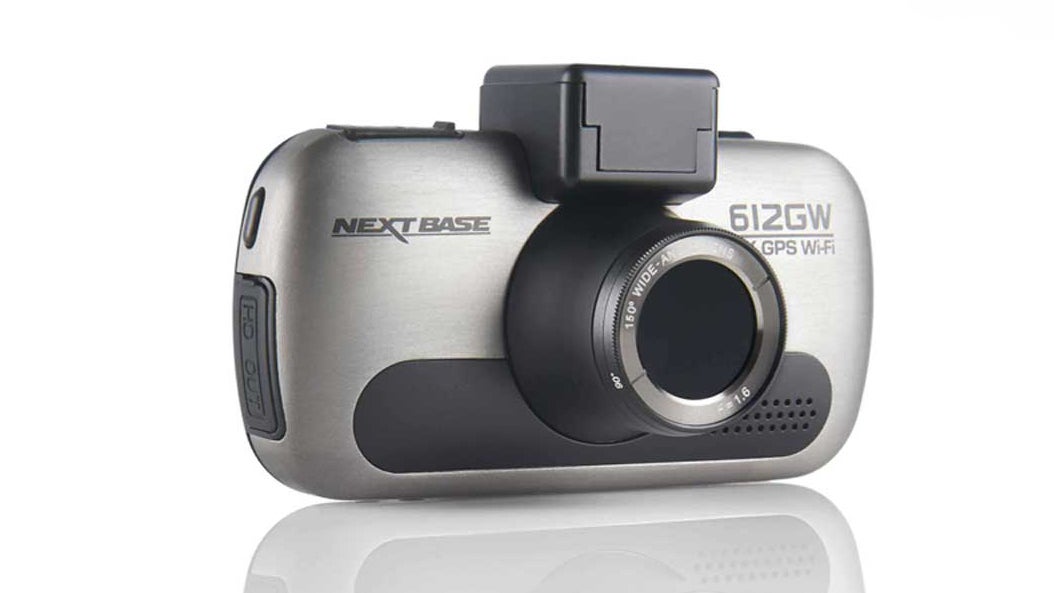
1. Nextbase 612GW dash cam
A very powerful, high-quality dash cam
Pros:
- Superb image quality
- Solid build quality
- Quick-release mount
Cons:
- Limited advanced dash cam safety features
- Wi-Fi doesn’t work
- Expensive
The Nextbase 612GW is the company’s flagship dash cam and is the first we’ve tested to offer insanely sharp 4K video capture.
The super-sharp video is a godsend during incidents, offering a crystal-clear image of what happened that’ll help clear up any potential confusion during a collision or incident. Its collision-detection charms are further aided by the inclusion of a G-sensor for detecting incidents, and built-in GPS, which makes it easy to retroactively see where any issues occurred.
The Nextbase 612GW is expensive for a dash cam that isn’t exactly packed with bonus features, and it’s a shame that we couldn’t get the Wi-Fi connectivity to work. Make no mistake, though, the 612G offers the best-quality footage we’ve seen from a dash cam so far.
Add to this the dash cam’s sturdy build quality, intuitive user interface and easy-to-read 3-inch LCD touchscreen and the 612GW easily earns its place as one of the very best dash cams.
The only downside is that it’s seriously expensive. Still, you get what you pay for, right?
Read our full Nextbase 612GW review
2. Aukey DR-01
A great budget dash cam that doesn’t take up a lot of room
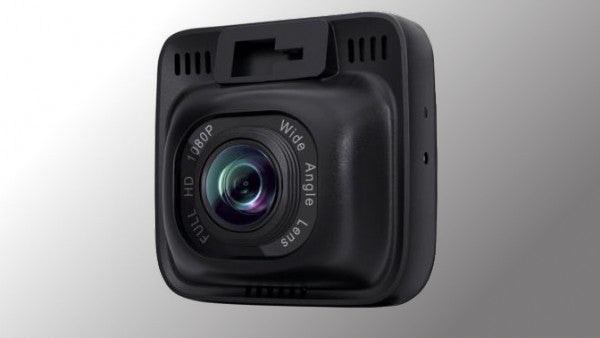
Pros:
- Inexpensive
- Reasonable image quality for Full HD
- Comprehensive mounting bundle
Cons:
- No built-in GPS
- No extra safety features
- No memory card included
You’re probably more familiar with the Aukey name from its USB hubs and audio gear, but the DR-01 dash cam puts the brand inside your car for road-recording on a budget.
It keeps things simple with a limited list of features, but what it does, it does well. It offers only Full HD video recording, which is sufficient for basic use and can drop to 720p at 60 and 30 frames per second to save battery life, too.
Its 2.19-megapixel Sony Exmor CMOS chip gives it a good picture in low light situations, as well as in broad daylight.
There’s no storage option included, so you’ll have to grab an 8GB microSD card yourself, which should be enough for about 80 minutes of Full HD footage – more than some of the more high-res cams out there.
Features include incident detection with three optional sensitivity levels, and the ability to time and datestamp video. Unfortunately, there’s no GPS to track where knocks and bumps happened though, sadly.
Elsewhere, there’s timelapse recording to capture the highlights from your journey and a motion detection mode which lets the DR-01 transform into a parking protector.
Simple, solid, and easy to use, the Aukey DR-01 is a great budget option if you just want an eye on the road to keep you feeling safe.
Read our full Aukey DR-01 review
3. Mio MiVue C330
GPS-enabled dash cam with safety camera warnings built in.
Pros:
- Decent price
- GPS-tagged recordings that you can view alongside a map
- Safety camera notifications with free database updates
Cons:
- Mediocre image quality
- Your car power output can’t be used by a sat-nav at the same time
- No memory card included
Although it costs less than £100, the Mio MiVue C330 is fully-featured and even has built-in GPS to record the location of any incidents. At this price, Mio has had to keep the resolution down, so the C330 records at 1080p only.
Fairly high compression is used and this is evident in the slightly-soft picture. However, detail can still be picked out, such as text on car number plates. Ultimately, this is what dash cams need to be able to do, so the C330 gets the basics right.
GPS is also used to provide safety camera warnings. You have to download the free database of cameras from Mio’s website, but this is completely free. And, you can add your own custom safety cameras if you find one missing from the free database.
If you’re after better image quality, there are other cameras on this list that will fit the bill. However, if you’re on a tight budget, the Mio MiVue C330 is excellent value, gets the basics right and has integrated safety camera warnings, too.
Read our full Mio MiVue C330 review
4. Mio MiVue 792 WIFI Pro
Wi-Fi lets you download clips and manage the dash cam from your phone
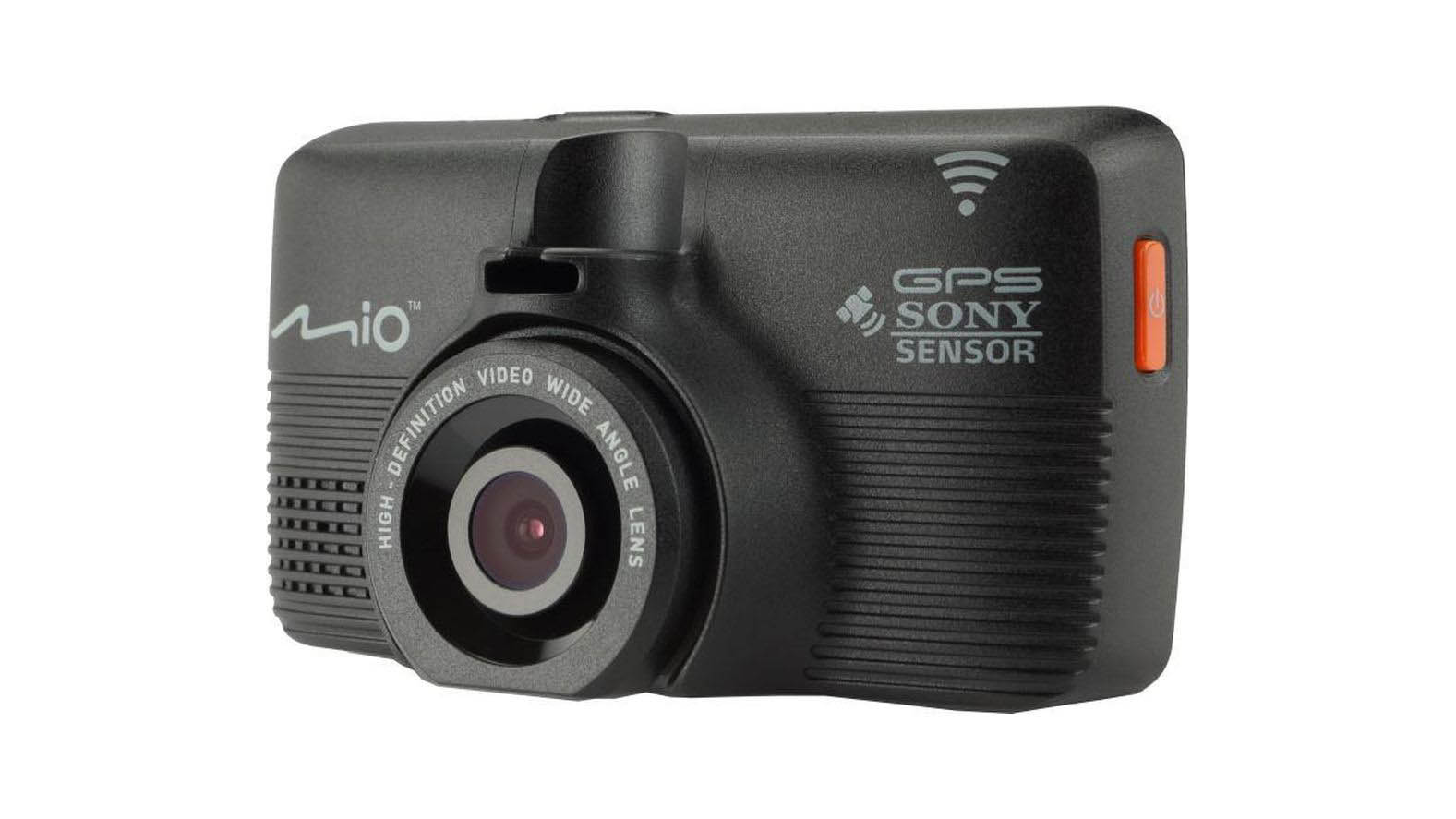
Pros:
- Lots of additional dash cam safety features
- Built-in GPS for location tracking with desktop app
- Wi-Fi and smartphone app
Cons:
- Expensive for a Full HD resolution dash cam
Considering it has a Full HD resolution, rather than 4K, the Mio MiVue 792 WIFI Pro is rather expensive. That said, you might pay a lot, but you get a lot of features, too.
As the name suggests, this model has built-in Wi-Fi, which means that this dash cam can talk to the app on your phone, letting you control recording and download clips to your phone. The Mio MiVue 792 WIFI Pro has tonnes of features including lane departure and forward collision warnings, and a reminder to turn on headlights when it’s dark.
Built-in GPS means that recordings are tagged with the location, and gives support for safety camera warnings once you’ve downloaded the database from Mio’s website. If you install the Smart Box Cable power kit (which made need professional help), the Mio MiVue 792 WIFI Pro has a parking mode, so you can record activity while you’re parked.
Video quality from the 1080p dash cam is excellent. Excellent colour balance and brilliant low-light performance put this model near the top for 1080p performance. With the option of adding in rear cameras, too, the Mio MiVue 792 WIFI Pro is an excellent, if not expensive, choice.
Read our full Mio MiVue 792 WIFI Pro review
5. Yi Mini Dash Camera
A very cheap dash cam that can shoot video at a Full HD resolution
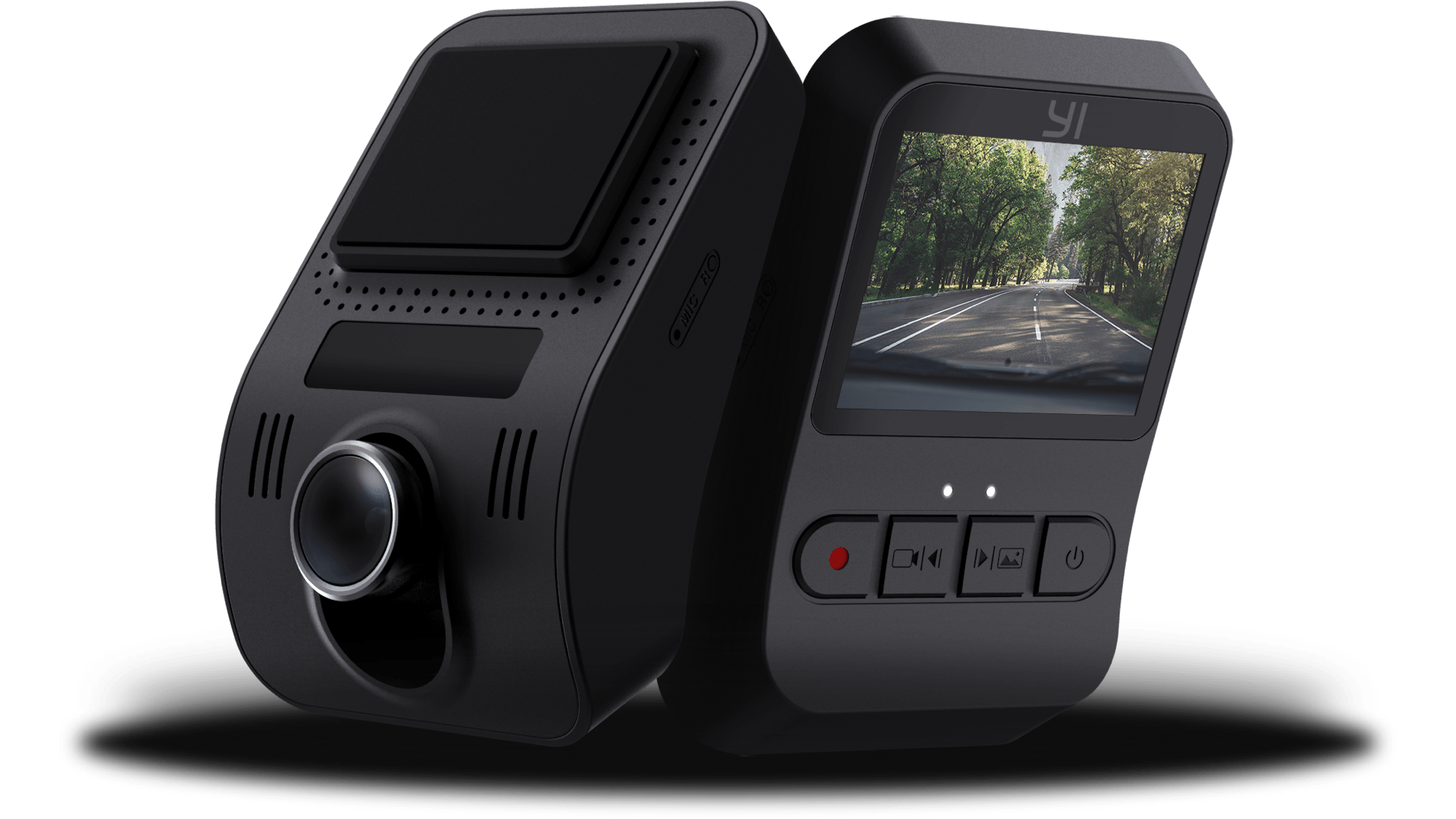
Pros:
- Very cheap
- Built-in LCD panel
- Built-in WiFi
Cons:
- Poor image quality in direct sunlight
- No GPS
- No advanced dashcam features
The Yi Mini Dash Camera isn’t the best-quality dash cam that you can buy, but it has one major advantage: it’s exceptionally cheap. If you’re just looking for something basic and don’t have a lot of money to spend, then this is the model for you.
Although the price is low, the Yi Mini Dash Camera is surprisingly feature-packed. For starters, this model shoots video at a 1080p resolution. In optimal conditions, video is detailed and the colour balance is very good. That said, in very bright direct sunlight, the camera struggles and it’s hard to spot detail.
There’s built-in Wi-Fi, so you can control the dash cam from your smartphone app, although you can control everything locally. There’s no GPS sensor, although there is a G-sensor, which lets the camera tag incidents automatically.
There are better cameras on this list, but there aren’t cheaper ones.
Read our full Yi Mini Dash Camera review
6. Thinkware F800 Pro
This dash cam comes with tonnes of safety features including lane departure and forward collision warnings
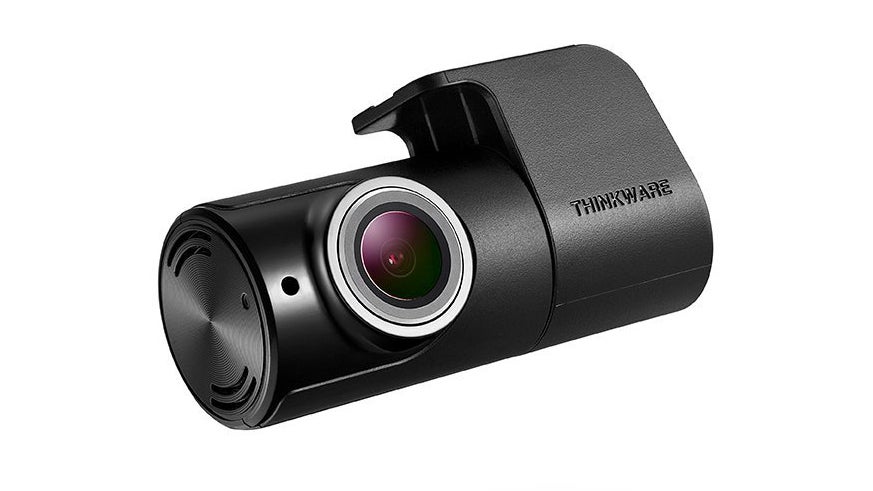
Pros:
- Cloud services via smartphone hotspot
- Rear-view camera
- Built-in GPS and advanced safety options
Cons:
- Only Full HD resolution
- No LCD panel for menu operation
- Smartphone required for configuration
The Thinkware F800 Pro is the flagship camera from the well-known dash cam company. Rather than pushing sensor resolution (this model shoots at 1080p), Thinkware has focussed on delivering features instead.
This model includes the rear-view camera, so you can capture what’s going on behind you as well as in front. As you might expect from a high-end model, the Thinkware F800 Pro has built-in GPS to track location, and a G-sensor that protects recordings from deletion when an impact is detected. GPS also lets the camera warn you about safety cameras, too.
Otherwise, there’s built-in lane departure and forward collision warnings. Neatly, the camera can let you know when the car in front starts to move, so you can start driving if you’ve stopped paying attention in a queue.
Image quality is excellent, with enough detail to read number plates. In other words, the quality of the video is more than good enough for the Thinkware F800 Pro’s intended purpose. With all of the features that you get, this is a top dash-cam.
Read our full Thinkware F800 Pro review
7. Halfords HDC400
A well-priced dash cam for a model that has a resolution of 1440p
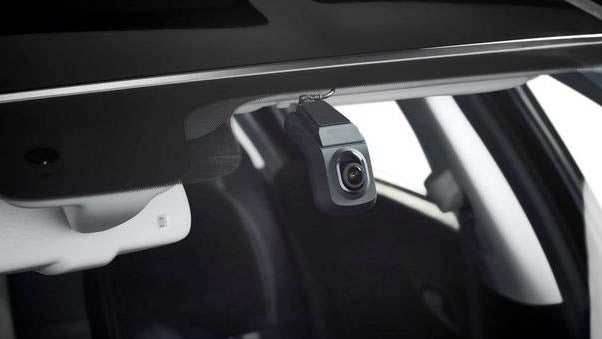
Pros:
- 1440p video resolution
- Built-in GPS for location tracking
- Wi-Fi and smartphone app
Cons:
- No LCD panel – configuration only via smartphone
The Halfords HDC400 is the company’s flagship own-brand dash cam. Although it’s the most expensive in the range, it’s not overly expensive, especially when you consider the 1440p shooting resolution and integrated GPS.
There’s no screen or on-camera controls on this model, so you have to manage everything through your phone using the Halfords HDC400’s built-in Wi-Fi. Given that you’ll probably rarely have to change settings this isn’t such a problem.
GPS lets the HDC400 tag footage with the location, while a G-sensor can automatically detect impacts and mark the recordings. There’s also a parking mode, which uses the G-sensor to start recording if an impact is detected – a great option for parking your car on a public road or car park. It’s a shame that the GPS doesn’t give safety camera warnings, though.
Footage is perfect for the intended application, with enough detail to read number plates. And, the Halfords HDC400 coped well on a bright and sunny day. If you want a higher-resolution camera with GPS, then the Halfords HDC400 is a well-priced option.
Read our full Halfords HDC400 review
8. Kenwood DRV-430
A feature-packed dash cam that doesn’t cost a fortune

Pros:
- Reasonable sub-£100 price
- Built-in GPS for location tracking
- Advanced dash cam features
Cons:
- Mediocre image quality
- Proprietary, captive cabling
For a price less than £100, you can’t fault the Kenwood DRV-430‘s feature list. It has built-in GPS, to track where footage was recorded and shoots at a Super HD (2304 x 1296) resolution. That’s quite amazing, on paper, but there are a few things that give away the budget nature. For starters, the dash cam uses a captive power cable, so you can’t charge other devices while the dash cam is plugged in.
Image quality is around middle of the pack: fit for purpose, but the footage isn’t as clear as on the best models. Still, a lot of these issues can be forgiven for the price. If you want a GPS-enabled dash cam for less, this is a great choice of model.
Read our full Kenwood DRV-430 review
That was our pick of the best dash cams. If you want to know more about choosing the right model, read on.
Best dash cams – Dash cams buying guide
If you’re a safety-conscious driver, a dash cam can be a great way to buy peace of mind. Not only do dash cams provide you with evidence when it comes to accident disputes, but some insurers will offer discounts of up to 15% off your premiums if you fit a dash cam, offsetting any initial outlay.
Best dash cams – Are dash cams legal?
Dash cams are entirely legal on UK roads, but may not be when you go abroad. You should also be aware that if you’re asked for footage by the Police, you’re legally obliged to hand it over. We’ve covered this more over at are dash cams legal?
Best dash cams – What form factor do I need?
As with all technology, dash cams come in a variety of forms. Some feature a single, forward-facing lens, while others include both forward and rear-facing cameras. These are the type you’ll want if you are worried about being rear-ended.
Others feature multiple lenses capable of recording various angles or have a wide-angle lens that gets in almost as much as you can see with your eyes. You can even get cameras that incorporate GPS technology that are able to measure your speed.
Best dash cams – Can I use a GoPro or action camera instead?
So what makes dash cams different from other mountable cameras such as GoPros? First, most dash cams ensure you don’t run out of memory by splitting recordings into small chunks. Although the camera will be recording continuously, the stored files will be broken up into 1-3 minute recordings. This allows the camera to record over the oldest file once the memory becomes full, ensuring you don’t miss any important events or fiddle around with deleting unneeded footage.
Best dash cams – Do I need an SD card?
Many dash cams will record to a microSD card, so you can install a larger card to record more footage. Factor in the cost of a memory card, because many dash cams won’t come with one in the box. Some dash cams make it easy to access this footage through a smartphone or tablet, too, so you don’t have to take the card out of the dash cam.
Best dash cams – What resolution video do I need?
All dash cams should support at least 720p resolution as the quality of the footage needs to be as high as possible to ensure it can be used to determine blame in disputes over accidents. Grainy grey blobs that aren’t clear won’t help you win a case.
The same goes for night vision: you’ll want to make sure that footage recorded during low-light driving is as good as during the day.
Best dash cams – What else should I look for?
More sophisticated options might include a G-sensor, which can detect when you’ve been involved in an accident due to a sudden change in movement. This could be an impact or heavy braking. This will then tell the dash cam to record the event and save it to a protected section of the memory card, ensuring it doesn’t get overwritten, safeguarding your precious evidence.
Best dash cams – Can dash cams reduce my insurance premium?
In some cases the use of a dash cam can reduce your insurance premium. Insurers are looking at how dash cams are used, and are building statistics on drivers that have one. It’s generally thought that dash cam users are more careful, as they know that they are being monitored. When your insurance comes up for renewal, it’s worth asking your insurance company the question or hunting around for a better deal by finding an insurer that does discount.


